Today, Advocates for the Prevention of HIV in Africa (APHA) celebrates an extraordinary milestone as our co-founder and Executive Director, Yvette Raphael, receives the prestigious Mani L. Bhaumik Breakthrough of the Year Award for her pivotal role in advancing HIV prevention through the development and testing of Lenacapavir. The award recognises role of three key contributors to bringing Lenacapavir to market: Wesley Sundquist, chair of the University of Utah’s department of biochemistry, who provided the foundational scientific research; Moupali Das,…

What are the societal impacts of a company’s CO₂ emissions? What is the value of research and development for the community? To enable comparison and valuation of non-financial metrics, Impact Valuation factors translate sustainability figures into a uniform currency. However, organizations use different methods to evaluate their sustainability performance and most of these methods are not publicly available. With a strong commitment to comparability and transparency, WifOR has published its Impact Valuation factors. “Our mission is to set standards in measuring…

The negative outlook of mid-July has been confirmed: The values of the Kiel Trade Indicator for world trade and for the trade of the major economies are all negative in July compared to June (adjusted for price and seasonal effects). Ship movements in the first half of the month already did not bode well, and the forecast is even worse now that the data for the full month is available. The main reason for this is likely to be the…

New NSF grant supports ongoing research into proteins. Rensselaer Polytechnic Institute (RPI) researchers Amir Hirsa, professor of mechanical, aerospace, and nuclear engineering, and Patrick Underhill, professor of chemical and biological engineering, have received a new three-year grant from the National Science Foundation (NSF) for $452,847 to study the physics of protein solutions using the ring-sheared drop module aboard the International Space Station. The grant starts on August 1, almost 10 years from the start of the ongoing NASA grant that…

Scott Forth receives $1.6 million grant to explore how chromosomes are segregated during cell division. It is a scary fact that one in two women and one in three men in the United States will develop some form of cancer in their lifetime. One of the hallmarks of many cancers is the occurrence of errors during the cell division process called mitosis. Therefore, critical to enhancing treatments or perhaps even finding a cure for cancer and other diseases, is developing…

European Innovation Council funds Europe-wide project led by TU Darmstadt. Magnets are key materials for the energy transition. However, they often consist of critical raw materials. Scientists led by TU Darmstadt are now researching alternative magnetic materials as part of the “CoCoMag“ project. The European Innovation Council (EIC) is funding the project with three million euros. Fossil fuels are increasingly being replaced by electricity generated from the sun, wind, and water. However, sufficient renewable energy is only the starting point…

The rising temperatures threatening life on our planet are caused in part by microbes that produce 50% of atmospheric methane, a gas 30 times more potent than CO2 at trapping heat. Surprisingly, another kind of microbe combats these rising temperatures by consuming up to 80% of methane released from ocean sediments. How are some microbes methane producers and others methane consumers? To solve this puzzle, an international team of researchers, Nikhil Malvankar (Yale University, USA), Carlos Salgueiro (NOVA University of…

Dr. Nataliya Yadzhak from Lviv/Ukraine, postdoctoral fellow and research associate for the Chair for Metals and Alloys at the University of Bayreuth, has been awarded a fellowship from the EU programme “Marie Skłodowska-Curie Actions for Ukraine (MSCA4Ukraine)” on the proposal of the Alexander von Humboldt Foundation. During the two-year fellowship, she will pursue a research project on hydrogen embrittlement of ferritic superalloys at the University of Bayreuth. Of the 26 research projects in Germany funded by the “MSCA4Ukraine” programme to…

Part of $2.5 million initiative led by NASA. The University of Texas at El Paso has joined a project led by NASA to leverage 3D-printing processes with the aim of manufacturing rechargeable batteries using lunar and Martian regolith, which is the top layer of materials that covers the surface of the moon and Mars. “UTEP is a national leader in additive manufacturing for space applications,” said Kenith Meissner, Ph.D., dean of the UTEP College of Engineering. “I congratulate the team…

Sophisticated mix of methods offers improved structure analysis – Young scientist from the University of Regensburg awarded the Lieselotte Templeton Prize of the German Crystallographic Society. Sometimes scientists have to accept that a method they have used for years fails under certain conditions. Such a failure calls for a careful analysis of the shortcomings and their subsequent elimination. An international team from the University of Regensburg, the University of Durham and the Helmholtz-Zentrum Dresden-Rossendorf (HZDR) has now done precisely this….

Research to develop and deploy a world-first diagnostic test that could accelerate malaria eradication has been bolstered with over $1.3 million in new funding from the National Health and Medical Research Council (NHMRC). Research to develop and deploy a world-first diagnostic test that could accelerate malaria eradication has been bolstered with over $1.3 million in new funding from the National Health and Medical Research Council (NHMRC). Two WEHI projects have received funding to clinically translate a test that can detect…

Herbert W. Franke, a pioneer of computer art who anticipated the metaverse, passed away on July 16 at the age of 95. About 80 of the most renowned generative artists, photographers, poets, and virtual world builders working today were invited by art meets science – Foundation Herbert W. Franke to honor his life and work. A percentage of the proceeds from the sales is donated by each artist. The artists’ donations will be used by the art meets science –…
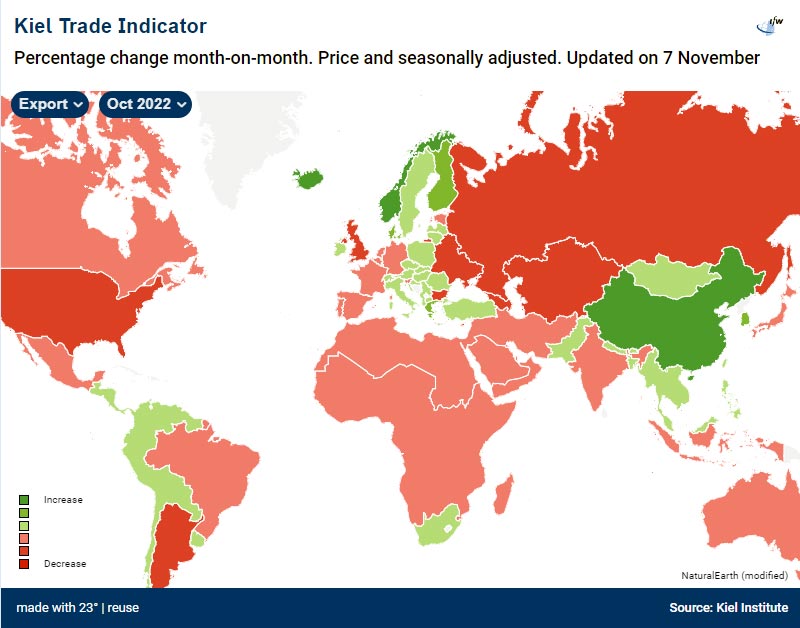
Congestion in container shipping is receding at a high level. This is shown by the latest data update of the Kiel Trade Indicator for the month of October. Freight rates for the transport of goods from China to Europe are at their lowest level since around 2 years. Trade values globally and for major economies compared to the previous month tend to be negative (price and seasonally adjusted). In the case of Russia, the sanctions are having an impact. The…
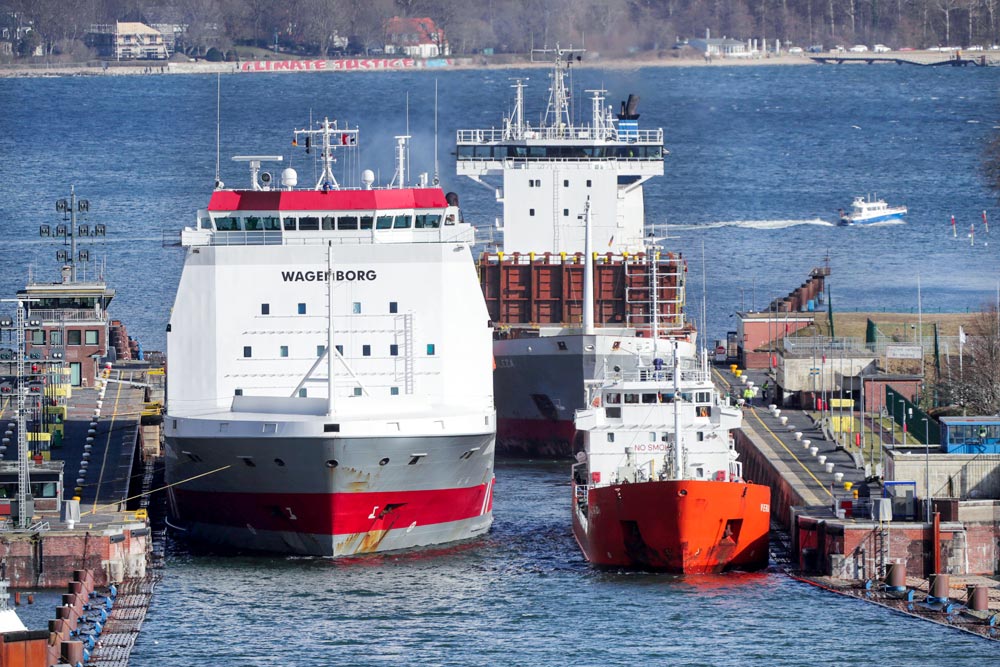
Millions in funding for the Kiel-based CAPTN initiative. Reduction of CO2 emissions from shipping through innovations in Schleswig-Holstein Participants: alliance comprising the Kiel University, Fachhochschule Kiel – University of Applied Sciences, thyssenkrupp Marine Systems GmbH, DSN, Ministry for Energy Transition, Climate Protection, Environment and Nature, Wissenschaftszentrum Kiel and 50 other partners The use of green hydrogen, hydrogen derivatives or other renewable energy sources will contribute significantly towards making shipping in the Kiel Canal as well as the North Sea and…
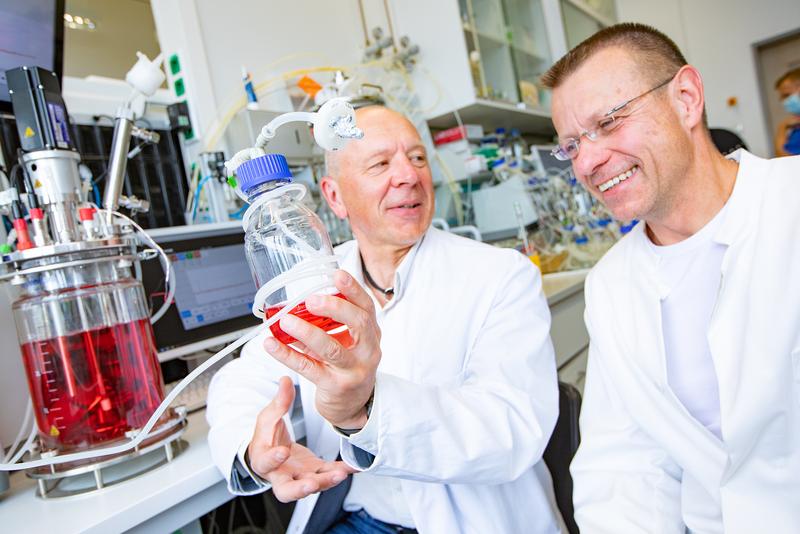
EU funds research project on cell-based heart repair with 6.1 million euros. Chronic heart failure – also known as cardiac insufficiency in medicine – is the most common reason for hospital admissions and one of the most frequent causes of death in the western world. In Germany alone, four million people suffer from this disease. Often a heart attack precedes, as a consequence the heart muscle is no longer supplied with blood and thus oxygen and the organ is irrevocably…
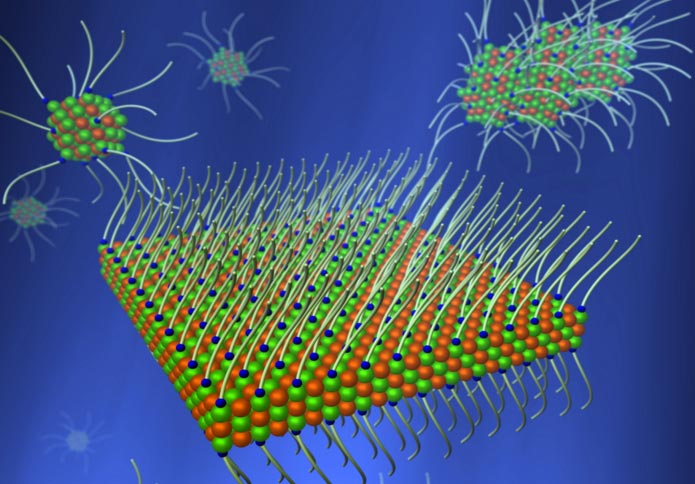
– solar cells and LEDs – with funding to expand scientists’ team. Chemistry expert secures Humboldt Foundation funding to recruit scientists for nanomaterials research. An expert in nanomaterials who is based in Swansea and Germany has secured around £250,000 of funding from the Humboldt Foundation to recruit early-career scientists to join his research team. Professor Christian Klinke, who works jointly at the University of Rostock in northern Germany and in Swansea University chemistry department, has been appointed as a Henriette…
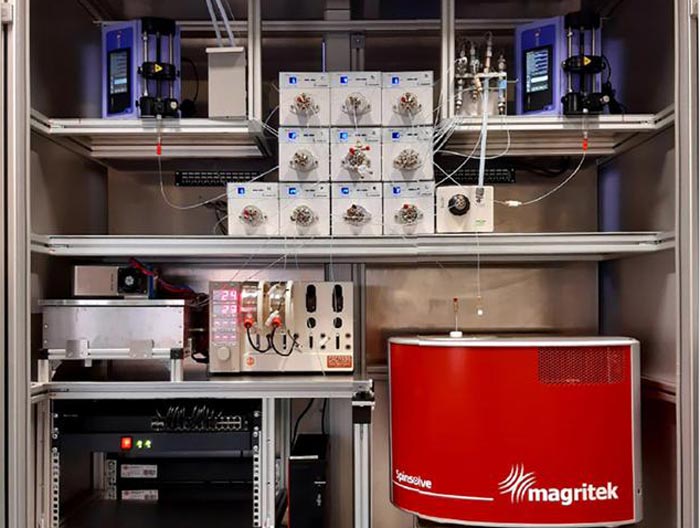
German-Canadian research collaboration. On July 1st, 2022, Professor Peter H. Seeberger, Director at the Max Planck Institute of Colloids and Interfaces (MPICI) will welcome his chemist colleague Professor Andrei K. Yudin. Within the next six months, they will conduct joint research on the automated synthesis of highly active substances. Yudin is to receive this year’s Konrad Adenauer Research Award. Seeberger and Yudin are united by one goal: they want to bring their results from fundamental research to application and in…